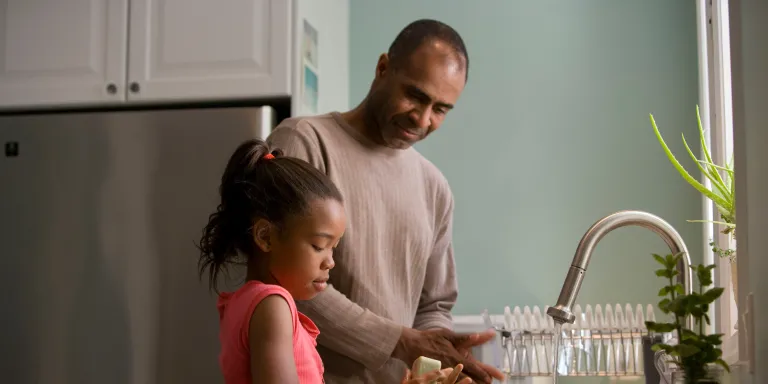
It can be one of the hardest things when you’re prevented from having a relationship with your children. You may feel bereft, angry, sad, or frustrated, among many other emotions. If your ex-partner stops you from seeing your children, it will really help to stay calm though. Managing your emotions and the situation carefully can be important for everybody involved.
There can be lots of reasons why your children’s other parent may have done what they’ve done. However, unless there are safety concerns, you’ve as much right as they have to see your children.
If it’s possible, try to talk to your ex-partner to see what’s happened.
-
Ask them why they’re doing this, has something happened to change things if previously you were spending time with them? (It can sometimes be due to miscommunication, a change in circumstances e.g. a new partner being in the picture for one of you, or something that has happened since you last saw them). If so, you might want to offer some flexibility to your existing arrangement.
-
If there are other children involved, has anything happened with them to change things? How do they manage all being together in the same home? Could there be any issues around jealousy on the part of one or more of them? How do they feel about having other children become part of their family? How do your own children feel about sharing you with others?
-
Explain the importance of the children maintaining contact with both their parents for their sake.
-
Let them know how you’re left feeling at a level you are comfortable with.
-
If contact has stopped completely and your children’s other parent refuses to answer your calls, texts, or other communications, you might need to explore other sources of help. Remember though if you can talk to your ex on a level that is comfortable for both of you this will be better for your children, even if this is just being civil to each other. Better still if you can have a constructive conversation with them.
-
Also, think of other ways to keep in touch with your children like indirect contact. This could be by email, text, Facetime, or by phone. This can help to maintain contact during the times when you can’t be with them in person. This can be particularly useful if your children live some distance from you.
Parenting styles
Most parents have different ways of raising children, and different rules and boundaries. It isn’t that one way is right and the other wrong. If children spend time in homes that have different rules this is OK providing both parents agree to these different rules in each one. Children will soon learn and adapt to the rules in each home. The important thing is not to undermine the rules in the other parent’s home as this can be very confusing for children.
What's the law?
You can learn about how the law makes decisions concerning your family arrangements on www.Advicenow.org.uk. You can download a factsheet on parental responsibility from the Gingerbread website. Family mediation can also be a very good way to discuss any issues like the above. Trained mediators can help you to come up with a plan that suits all of you and if necessary, this can be made into a formal agreement which can be made into a legal document if taken to a solicitor. However, if you do need legal advice the Coram Children’s Centre can provide this. (www.coram.org.uk). You may also want to seek extra support for yourself while you go through this difficult time.
How we can help
If you’re looking for support with your relationships, we can help. We offer a range of ways to speak with a trained relationship expert including ongoing counselling, 30 minute web and phone chats, and one session therapy.
Find out which service is right for you
How you can help
Have you found this advice helpful? Make a donation to help us reach more people and continue supporting the nation’s relationships:
Can't afford to donate? We understand. Instead, we ask that you leave us a 5 star review on Trustpilot.